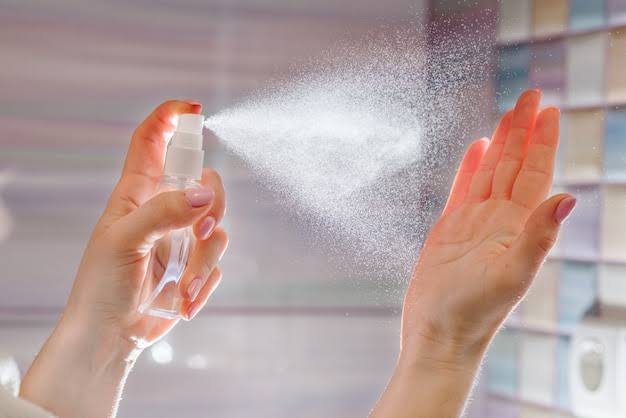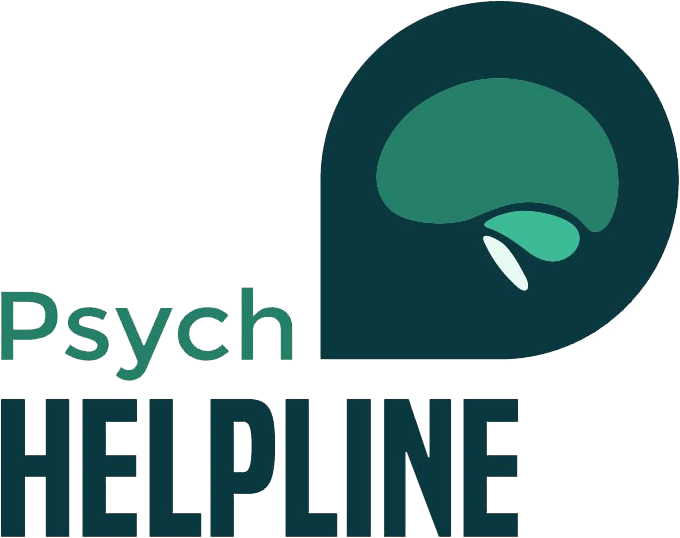Table of Contents
According to a survey, at least four percent of the population experiences some form of OCD, and contamination OCD is one of its many subtypes. Contamination OCD is a debilitating disorder categorized by an irrational need to carry out compulsions and an extreme fear of contaminants. The effects of this condition on one’s life can be so adverse that the World Health Organization (WHO) has ranked it in the top ten of the most disabling illnesses of any kind. OCD is a neurological disorder and its prevalence depends on the presence or lack of specific brain structures.
There are a lot of clichés associated with people who struggle with contamination OCD thanks to biased representation in mass media. Being a mild germophobe or taking care of personal hygiene doesn’t categorize you as someone who has contamination OCD. Living with contamination OCD can be far worse due to the involvement of obsessions and compulsions. Here’s more you should know about Contamination OCD and how you can help someone who’s living with it;
Contamination OCD: 11 Easily Spottable Signs
- Repeatedly taking showers and having scraped skin due to rubbing body scrubbers extra harshly
- Washing hands or sanitizing them repeatedly
- Wearing a face mask at all times in public and maintaining social distance to extreme lengths
- Bailing out social events a lot more than usual
- Carrying out laundry runs multiple times a day
- Touching or picking up things with a barrier; a stick, paper towel, gloves, etc.
- Not sharing anything personal with others
- Spending a lot of time researching and worrying about various diseases
- Refusal to accept the food someone else made
- Showing aggression when someone invades their personal space
- Finding the idea of physical affection; hugs, scary or repelling
Is It Always Contamination OCD Behind Your Fear Of Contamination?
No, it’s not always contamination OCD responsible for your fear of contamination. Your fear of germs or contamination could also be stemming from an undiagnosed condition called Mysophobia. Mysophobia that’s also known as Germophobia and Bacillophobia is the irrational fear of germs and contaminants such as; dirt etc. Individuals struggling with Mysophobia can report having heart palpitations due to extreme anxiety. Another huge giveaway is them going to extreme lengths just to ensure that anything they’re touching or consuming is 100% safe. Their fear of contamination might also be evident from the fact that they sweat profusely or even start crying at the thought of being close to a contaminant. Mysophobia can lead to social phobia and a large majority of people that have OCD also have Mysophobia.

Contamination OCD: 10 Common Compulsions That Should Be On Your Radar
- Likely, someone with contamination OCD would never be a hoarder. A common compulsion of theirs is to throw away or discard stuff more often than others. Even if the dietary item or clothing item seems fairly fine, their fear of contamination coerces them into throwing that into the garbage and buying a whole new thing.
- If you or someone around you has contamination OCD then they’re highly likely of having an individual space inside their house. This individual space is way off anyone else’s limits and no one else can enter that. This particular space could be that person’s bedroom or reading room etc. That particular clean space is a “safe zone” that someone with OCD thrives in and wants everyone else to stay away from.
- Another noticeable compulsion is the hoarding of cleaning products and excessive sterilization of every item in the house.
- Repeatedly washing your hands and taking multiple showers a day is perhaps the most commonly known compulsion for someone with contamination OCD. In extreme cases, such individuals tend to use harsh chemicals like bleach, etc. to relieve their anxiety regarding any “remaining” contaminants on their body.
- People that have contamination OCD change their clothes multiple times a day. In usual cases that would be a sign of good sanitation if you change your clothes when they’re dirty or extra sweaty. But, someone with OCD will always find a way to wear something new or cleaner, even when the last clothing item is absolutely clean. Just the thought of catching germs or sitting in sweat makes them anxious.
- Skipping out on social events or any chances of socialization immediately cuts down chances of coming in contact with contaminants. Therefore another common compulsion is avoiding chances of socialization or mingling to an extreme extent. Such individuals rarely go out on dates or attend a girl’s night at a local club.
- The fear of unknown diseases and contaminants fills them with fear to the brim. That’s why another compulsion is there need for useless research. They’re always scared of unknown illnesses and keep tabs on the symptoms of diseases they don’t even have.
- People with contamination OCD might go as far as avoiding sexual activities or intercourse fearing the worse. They get anxious at the thought of initiating physical contact with someone and getting infections, sexually transmitted diseases, etc. The fear of bodily fluids like semen, saliva, etc. is very much obvious.
- People with contamination OCD seek timely reassurance by getting health tests done every now and then. This compulsion results from the fear that he/she might have an undiagnosed condition that could turn fatal.
- To keep their anxiety at bay someone with contamination OCD can often create a mental checklist of clean and dirty items. As the day goes on he/she will tick off the clean items one by one and won’t back out until the entire risk list has been completed.
Why’s Living With Contamination OCD So Hard?
While skimming through our section of compulsions you might’ve realized it’s hard living life with contamination OCD. Yet, here’s more on some common struggles people living with contamination OCD find themselves fighting against.
- Living with contamination OCD can practically ruin your chances of having sexual contact or an intimate relationship with your partner. Of course, the odds can be in favor of some people but that rarely happens. Their fear of germs can render them unable to really progress a relationship to the next level. In some cases, this fear of contamination puts a stop to their dating life from the very beginning. Even if they end up getting romantically linked, their constant need for an organization might come off as nagging which can make their partner feel bad. Casual sex also becomes a huge no-no situation for such people and can lead to sexual frustration.
- Inability to socialize, fearing contamination, can make a person feel lonely. People are all we have. These chances of mingling with the people you love give you the emotional support and serotonin boost you need to get through this journey called life. So, when you take away this one thing and separate a fish from its pond, she might not thrive as well as it used to.
- Contamination OCD can act as a huge hurdle between a person and the usual activities of the day. Until a compulsion is carried out; he/she can’t proceed with the rest of their day which ruins their routine to a certain extent. For instance; some people can’t eat the first meal of the day until they’ve sterilized each item in their crockery and ensured everything’s clean.
- Individuals that have contamination OCD can have panic attacks while their country’s under the course of a pandemic. The situation is even more debilitating because of the irrational fear of catching a virus that’s killing thousands across the globe.
- The fear of judgment is too much to handle sometimes. People such compulsions feel like being in public or having more friends will increase the chances of public humiliation. Thus, they’re under constant stress that someone might not find them worthy because they have OCD.
- Having contamination OCD can destroy your quality of life and adversely affect your relationship with children. In extreme cases, an individual might find the idea of holding his/her kid quite repelling. Fearing infections or body fluids a parental figure might not initiate contact which can make a small child feel unworthy. Realizing the extent of their debilitating condition some women go as far as unwillingly aborting their kids. That’s because the idea of nurturing a family of their own seems so unlikely when your life seems like a whirlwind of issues.
- The social avoidance and constant urge to remain clean can clearly impact a person’s education. Their financial situation can worsen too as OCD tempers with their professional career.
- Contamination OCD can result in extreme physical damage. While carrying out one of these many cleaning compulsions people end up damaging their skin with strong cleaning products. In extreme cases of contamination OCD, some people go as far as self-harming and scraping away the skin from an “unclean” section of their body.
- Over-fixating on cleaning and sterilizing things can take away a large chunk of your life which leaves no time for anything important. Consequently, someone with contamination OCD might feel like they’re useless or wasting away their life instead of doing something meaningful.

How To Help Someone In Coping With Contamination OCD?
Someone who’s dealing with this neurological disorder will need your support and the guidance of professional help. Instead of verbally insulting them and labeling these compulsions as irrational, you should be lending a helping hand. Someone with contamination OCD might repeatedly require reassurance from you as it’s a compulsion that provides them relief. For instance; he/she might ask whether or not the plates you’re both eating in are clean or sterilized.
In that case, you should leave the conversation open-ended instead of offering reassurance. Doing this might be hard and painful for you because you want to see your friend/partner happy or calm. Reassuring them will strengthen their symptoms in the long run while giving temporary relief. The act of molding your responses according to an OCD patient’s compulsions is called “accommodation”. Accommodation might seem like the right choice to you because you want to relieve the anxiety of the person you love but you must understand that you’re derailing their recovery by doing that.
Don’t perpetuate their obsessions by further helping them clean up the things that are already clean. Try to remind them that they actually don’t want to do what they’re doing and it’s their OCD that’s making them act this way. Try to encourage them to seek professional help for contamination OCD. It’s a long process with many hurdles but you must remain calm instead of judging the person who has contamination OCD. If they don’t wish to seek help then don’t coerce them, just respect their right to choose what they want. If they’re seeking therapy you can talk to their therapist to find out how you can help them at home. Read up on their condition instead of saying offensive things like;
- “You can stop it if you really try”
- “You don’t seem like someone who has OCD”
- “It’ll go away, you just need to relax”
- “If you have OCD, you can come & clean my house”
Final Words
Exposure and response prevention is a trusted and largely practiced technique used by therapists while handling OCD patients. ERP can gradually build skills in contamination OCD patients that help them handle any obsessions and unwanted thoughts. With a decent amount of therapy and serotonin reuptake inhibitors individuals with contamination, OCD can live a fairly normal life. To discover more regarding this disorder, don’t shy away from consulting the relevant literature. Cheryl Carmin’s Obsessive-Compulsive Disorder: Demystified and Dr. Lee Baer’s The Imp Of Mind are both great reads.







